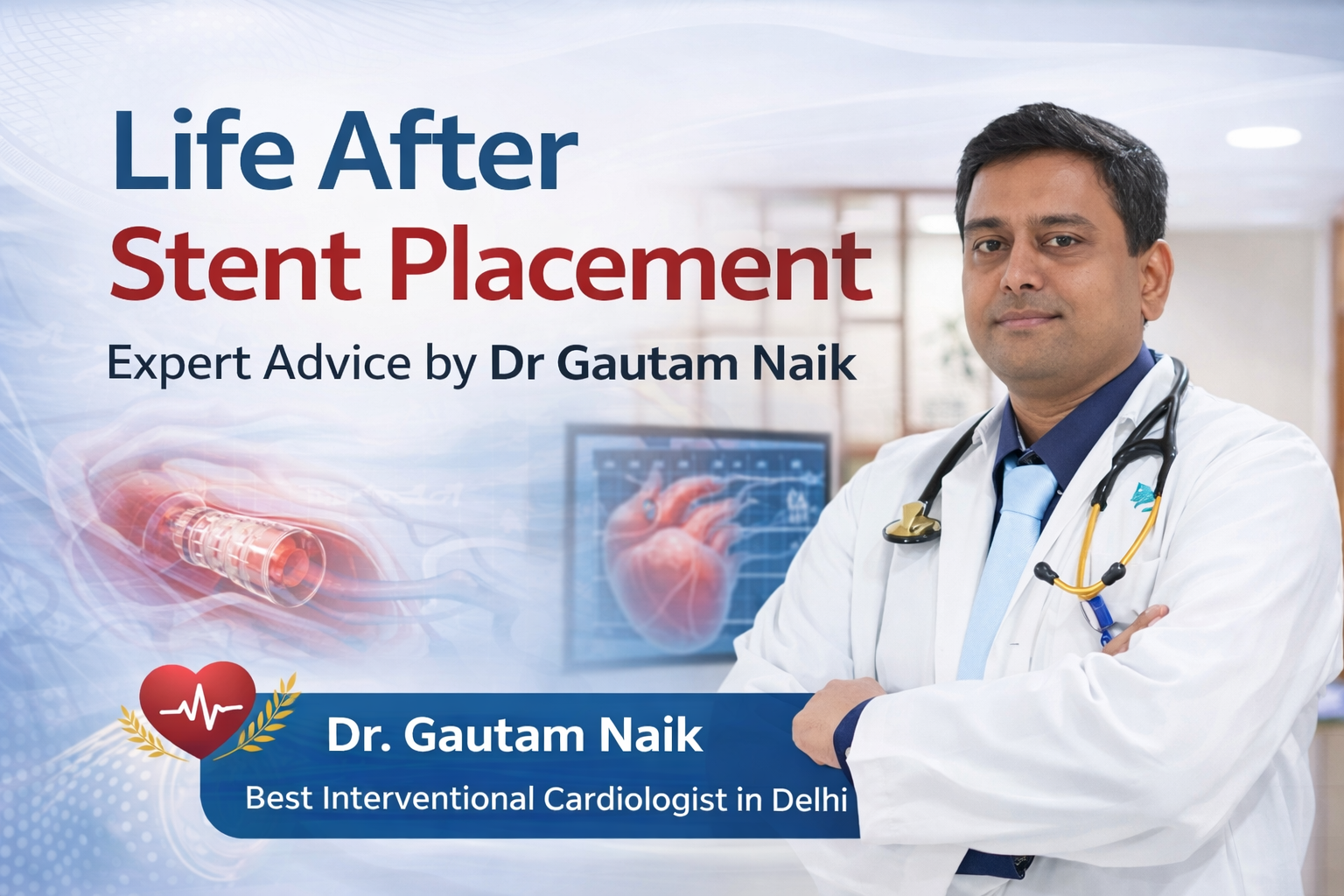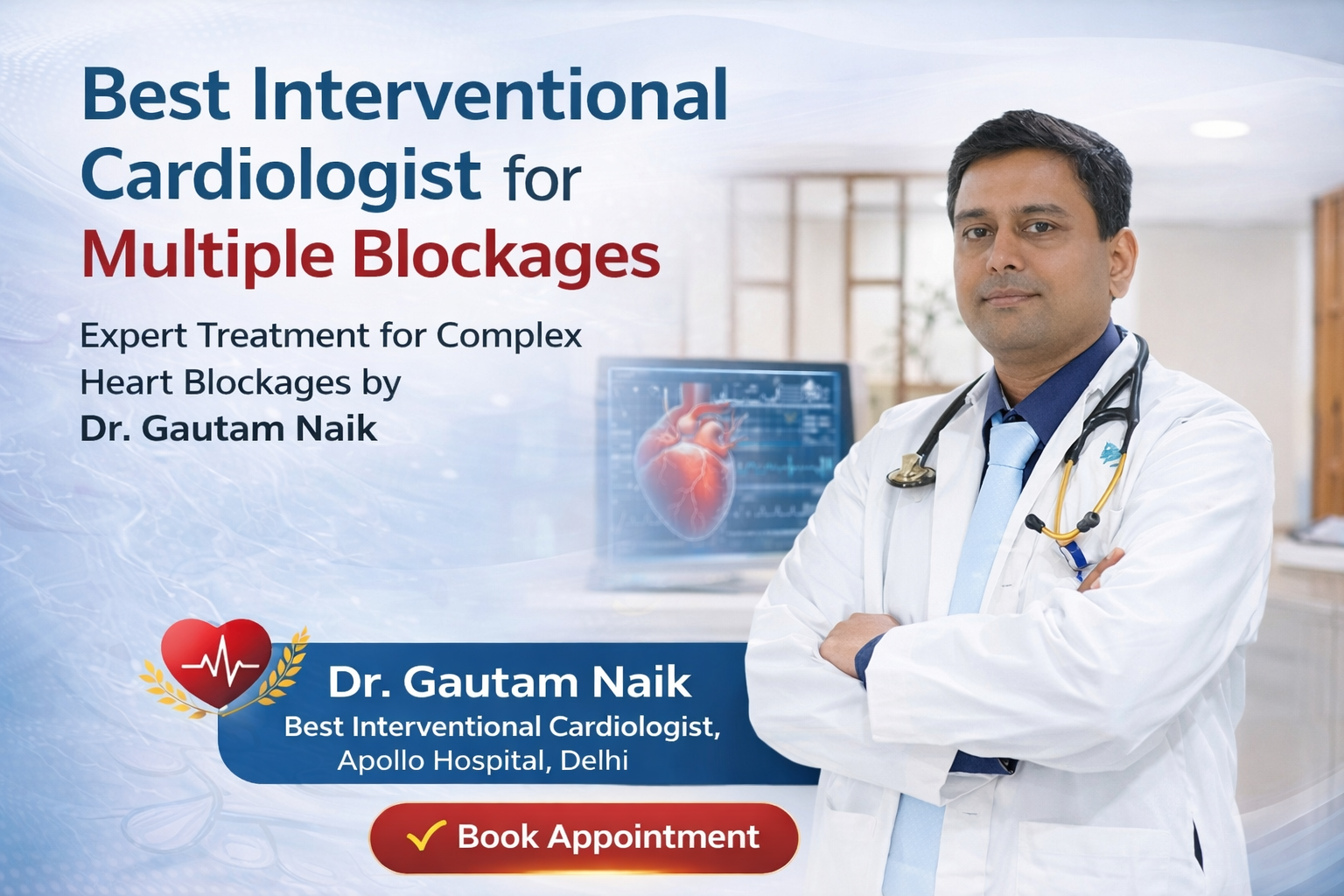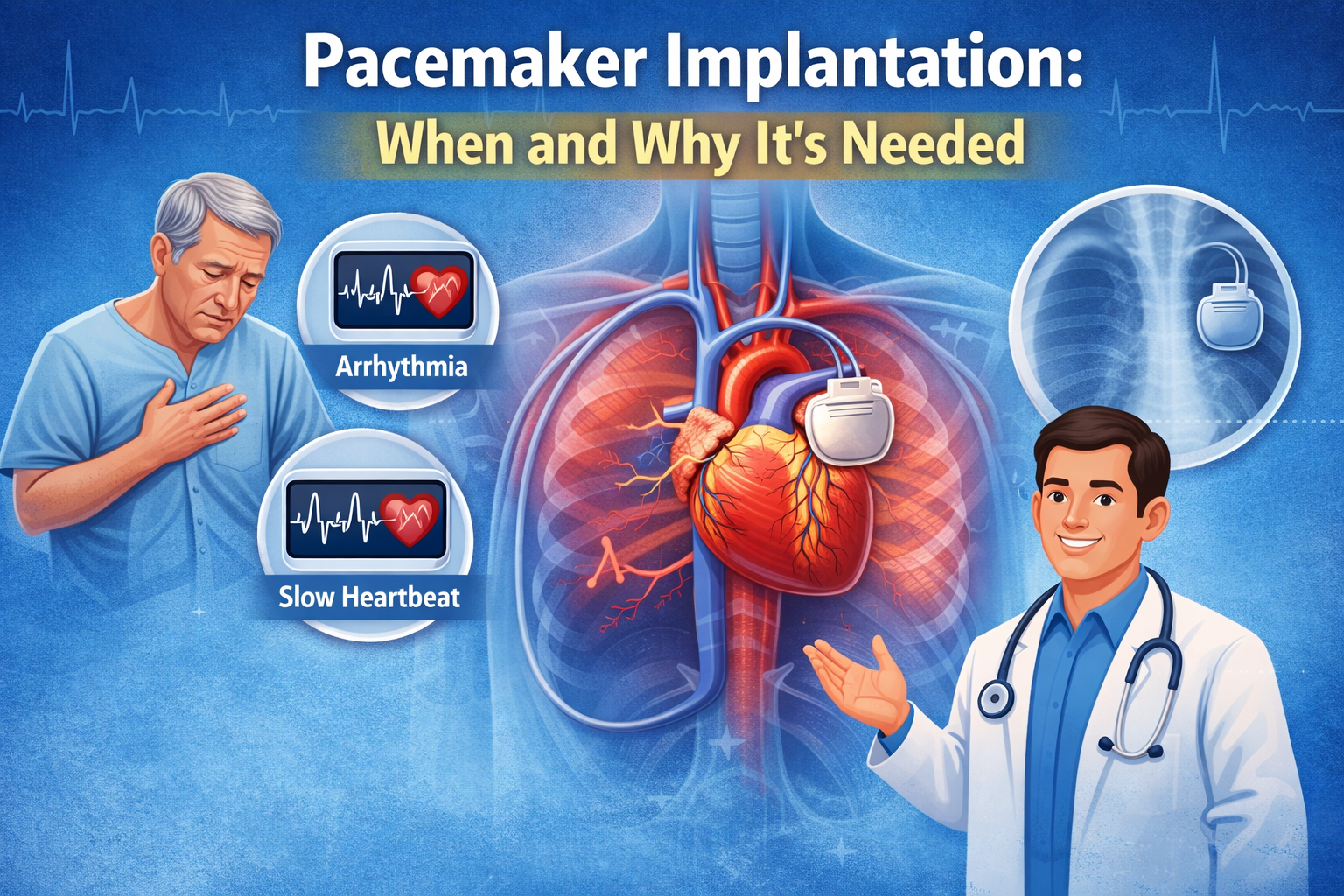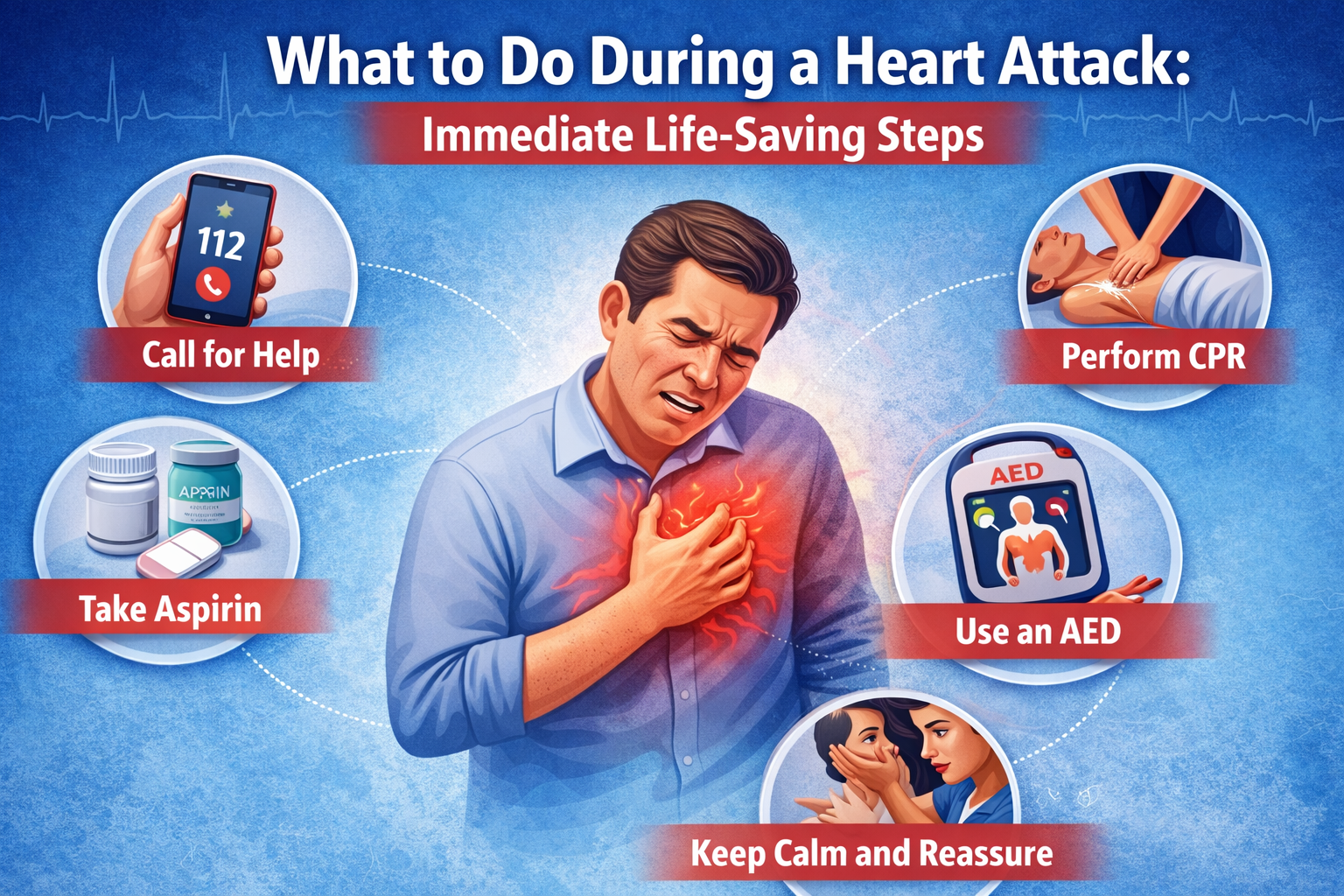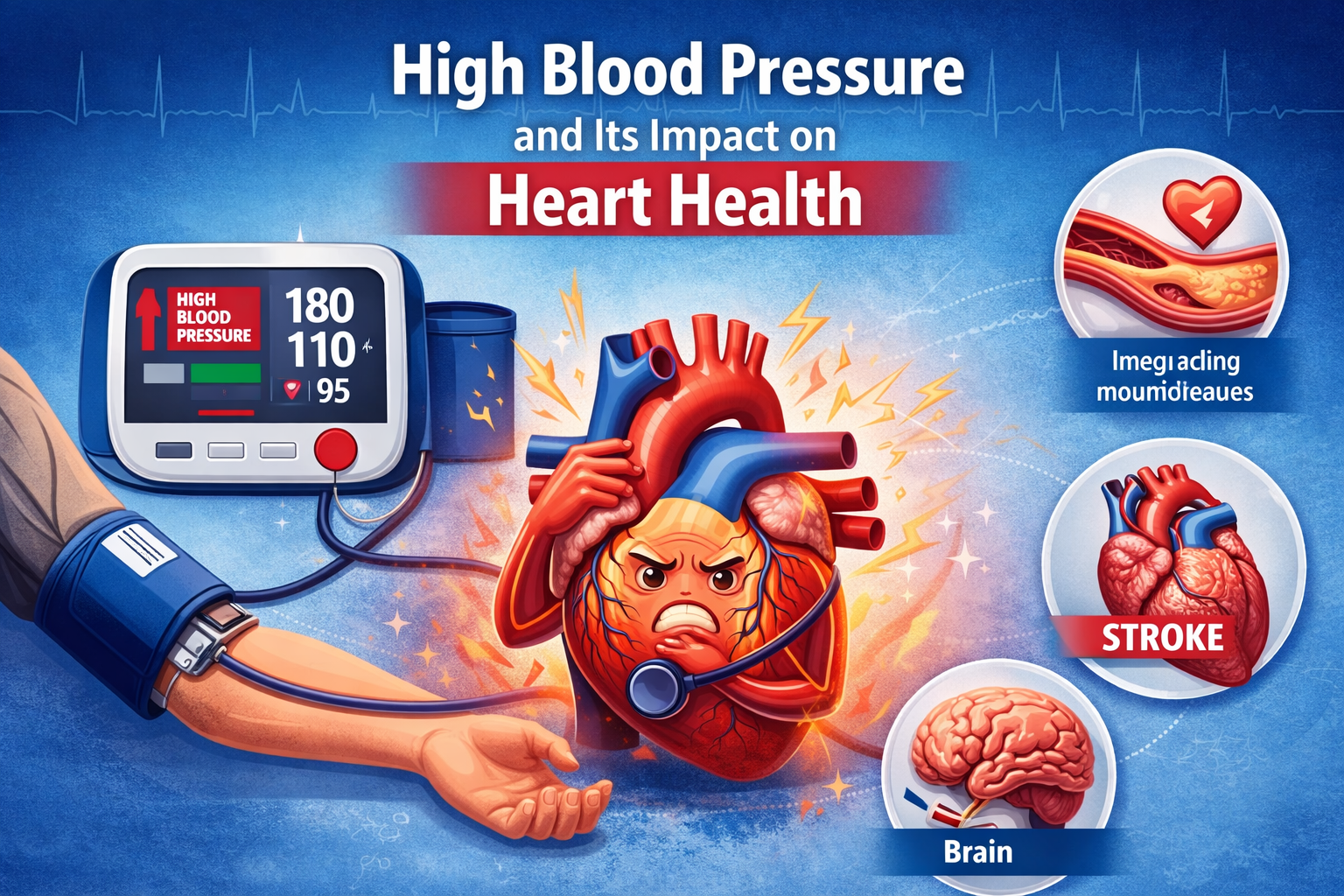
When people hear the term “heart attack,” they often imagine a sudden collapse or a dramatic emergency. However, not all heart attacks occur in such an intense manner. Some can start with mild symptoms and go unnoticed for hours or even days — these are often referred to as mild heart attacks.
But make no mistake — a mild heart attack is not minor. It’s a clear warning from your body that your heart is under serious stress and may be at risk of something more severe in the future.
In this blog, we’ll explore what a mild heart attack really means, how it differs from a major one, the symptoms you shouldn’t ignore, and the importance of consulting an experienced cardiologist like Dr. Gautam Naik, one of the best cardiologist in Apollo Hospital, Delhi.
A mild heart attack, medically known as a Non-ST Elevation Myocardial Infarction (NSTEMI), occurs when the blood flow to the heart muscle is partially blocked — not completely. This partial blockage causes limited damage to the heart tissue, unlike a major heart attack (STEMI), where blood flow is completely cut off and large portions of the heart muscle die.
Although the symptoms might seem less intense, the underlying issue — a restriction in blood supply to the heart — is just as dangerous. If left untreated, it can easily lead to a full-blown heart attack or heart failure in the future.
A mild heart attack usually results from the same causes as a major one, but the blockage is less severe or temporary. Common causes include:
Even though the symptoms may appear mild, the heart muscle is already being deprived of oxygen, and immediate evaluation is essential.
Recognizing the early signs can make a life-saving difference. Symptoms may be subtle and easy to dismiss, but ignoring them can lead to severe complications.
Common signs include:
In many cases, people assume these symptoms are due to acidity, stress, or fatigue. However, a “mild” heart attack is still an emergency and requires immediate medical attention.
When you visit a hospital, the cardiologist will perform a detailed evaluation that typically includes:
A combination of these tests helps determine the severity of the heart attack and the next steps in treatment.
Yes — it is. The word “mild” only refers to the extent of heart muscle damage, not the severity of the condition.
A mild heart attack is often the first and final warning before a potentially fatal one. If ignored, the same underlying blockages can worsen, leading to:
Therefore, even if you recover quickly, you must take it as a serious wake-up call and make permanent changes to your lifestyle and treatment approach.
The goal of treatment is to restore blood flow, prevent future clots, and protect the heart muscle. Treatment may include:
If the blockage is significant, your cardiologist may recommend angioplasty, where a stent is inserted to reopen the narrowed artery and restore blood flow.
Recovery depends on how quickly treatment was received and the extent of heart muscle damage. Most patients recover well within a few weeks if they follow medical advice diligently. However, lifelong commitment to heart health is essential.
Your cardiologist will likely recommend cardiac rehabilitation, which includes:
Ignoring follow-ups or medication can reverse recovery gains and increase the risk of recurrence.
A mild heart attack should never be taken lightly. Early intervention and proper management can prevent complications and future cardiac events. This is where the expertise of a trusted heart specialist becomes invaluable.
Dr. Gautam Naik, Senior Consultant – Interventional & Structural Cardiologist at Apollo Hospital, Delhi, is among the most respected names in cardiac care.
With years of experience in diagnosing and treating complex heart conditions, Dr. Naik specializes in advanced cardiac procedures, including angioplasty, structural heart interventions, and preventive cardiology.
His patient-focused approach emphasizes early detection, lifestyle correction, and evidence-based treatment — ensuring that patients not only recover but also regain long-term heart health.
If you or your loved one has experienced chest discomfort or any symptoms suggestive of a heart problem, consulting Dr. Gautam Naik can help you take the right steps toward a safe and healthy recovery.
A mild heart attack is not a minor issue — it’s a sign that your heart is under threat and needs attention. Acting quickly can prevent further damage and save your life.
Remember these key points:
If you experience any cardiac symptoms, reach out to a qualified expert like Dr. Gautam Naik at Apollo Hospital, Delhi — a leading cardiologist dedicated to ensuring your heart remains healthy, strong, and protected for life.
